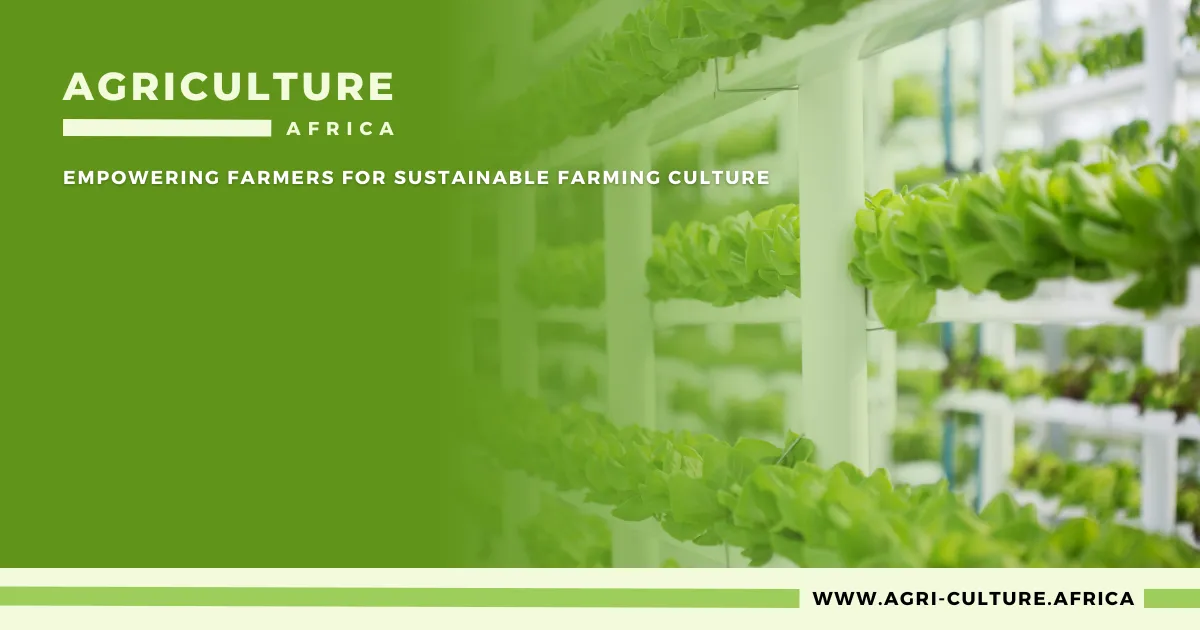
Empowering African Farmers for Sustainable Farming Culture
This article looks at the costs and benefits of starting a hydroponic farm in Africa, including the initial investment, ongoing maintenance, and potential profits. A profitability analysis is provided to assist farmers in making informed decisions about whether hydroponic farming is a viable business option.
Hydroponic farming is becoming a more popular agricultural method in Africa. With its numerous advantages, such as reduced water consumption and increased space efficiency, it represents a promising opportunity for farmers to increase their yield and profit. However, before embarking on such an adventure, it is critical to weigh the costs and benefits of establishing a hydroponic farm.
The equipment required to set up the system is one of the most expensive initial expenses for starting a hydroponic farm. Pumps, nutrient solutions, growing containers, and lighting systems are examples of such items. The costs can vary greatly depending on the size of the operation and the equipment chosen. A small hydroponic system may cost a few hundred dollars, whereas a larger commercial system may cost thousands.
After the hydroponic system is installed, ongoing maintenance costs must be considered. This includes the cost of running the system with water and electricity, as well as the cost of replacement nutrient solutions and other consumables. Labor costs must also be considered, as hydroponic systems must be monitored and maintained on a regular basis to ensure optimal growth conditions.
Despite the initial and ongoing costs of hydroponic farming, the profit potential is substantial. Hydroponic systems can yield more per square foot than traditional soil-based methods, allowing farmers to generate more revenue from a smaller growing area. Furthermore, hydroponic produce is frequently of higher quality and can command a higher market price. In some African countries, for example, hydroponic lettuce can sell for up to twice the price of conventionally grown lettuce.
The ability to grow crops year-round is another factor that can contribute to the profitability of hydroponic farming. Traditional farming methods in many parts of Africa are limited to a single growing season per year. Crops can be grown year round using hydroponics, increasing revenue and profit potential.
While there are significant potential benefits to hydroponic farming, there are also challenges to consider. Access to reliable electricity and water, for example, can be a significant barrier to establishing a successful hydroponic operation in many parts of Africa. Furthermore, the initial start-up costs for small-scale farmers can be prohibitively expensive, making it difficult for them to compete with larger commercial operations.
Despite these challenges, Africa has a number of successful hydroponic farms. These operations, which range from small-scale family farms to larger commercial enterprises, show that hydroponic farming can be a viable option for African farmers.
Table: Example of Sample Budget for Potential Profits from Hydroponic Farming in Africa
| Crop Type | Yield /m2 | Selling Price/Unit | Revenue/ m2 |
|---|---|---|---|
| Lettuce | 2-3 heads | $ | $ |
| Tomatoes | 2-4 kg | $ | $ |
| Cucumbers | 1-2 kg | $2 | $ |
*Note: These are approximate values and actual prices and yields may vary depending on location and market conditions
Hydroponic farming offers African farmers a promising opportunity to increase yield and profitability. While there are initial and ongoing costs associated with installing and maintaining a hydroponic system, the potential for increased yields and higher produce prices can result in significant profits. However, the specific needs and challenges of the African context, such as access to resources and competition from larger commercial operations, must be carefully considered. Hydroponic farming can be a successful and sustainable option for African farmers with careful planning and investment.
Your donation fuels change! Help Agriculture Culture in Africa empower farmers with resources, training, and access to innovation. Together, we can revolutionize African agriculture.

Empowering Sustainable Growth and Innovation in African Agriculture
Sign up to our newsletter